Introduction
Simon Cowie and Robert Lloyd bring a special episode from Cape Town, South Africa, at the International Conference of Emergency Medicine (ICEM). The focus is on Robert's profound experiences working in South Africa’s emergency departments, particularly dealing with major trauma in challenging environments like Khayelitsha Hospital. This blog post recounts Robert's transformative journey, offering insights into managing severe trauma cases and coping with intense psychological stress.
Experiencing Major Trauma in South Africa
Robert’s elective stint in South Africa aimed to deepen his expertise in major trauma, a specialty for which the country is well-known due to its high rates of violence-related injuries. He worked in New Somerset Hospital in the city and Khayelitsha Hospital in the township, where he faced a staggering volume of trauma cases, especially during "payday weekends"—a time marked by increased violence and accidents due to heightened alcohol consumption.
On his first night shift, Robert encountered an overwhelming number of severe cases, including 32 stab wounds to the chest, seven to the neck, and eight fatalities, six of whom were minors. This immediate immersion into high-stakes trauma care was a stark contrast to his previous experience in Australia and underscored the unique challenges faced by healthcare professionals in South Africa.
The Reality of Community Assaults
A particularly harrowing aspect of Robert’s experience was dealing with the aftermath of community assaults, where residents, in the absence of adequate police presence, took justice into their own hands. This vigilante justice often resulted in severe injuries, adding to the already heavy burden on emergency departments. Patients frequently presented with blunt trauma and crush injuries, showcasing the harsh realities of community-based violence and the critical need for comprehensive emergency care services.
Psychological Impact and Stress Management
The sheer volume and severity of cases led Robert to experience an acute stress reaction, referred to as "Condition Black," a term popularized by Dave Grossman in "On Combat." This state represents a high level of stress-induced impairment, where cognitive and physical functions degrade. Robert felt overwhelmed, his heart racing, hearing muffled, and hands shaking—making even simple medical procedures challenging. This response highlighted the necessity of managing psychological stress to maintain effective performance in high-pressure situations.
Strategies for Overcoming Psychological Barriers
To cope with the intense stress and improve his performance, Robert employed several strategies: overlearning essential skills, engaging in mental rehearsal, and fostering relentless positivity.
-
Overlearning Essential Skills: This involved practicing critical procedures like fast scanning and intercostal drain insertion until they became automatic. He also mastered surgical hand tying, crucial in the resource-limited setting of Khayelitsha Hospital, where suture instruments were often unavailable. This preparation ensured he could perform these tasks effectively, even under stress.
-
Mental Rehearsal: Robert used this technique to visualize and mentally practice the steps of critical procedures, such as rapid sequence intubation (RSI) for severe head injuries. This repeated mental walkthrough helped reduce anxiety and built confidence, making the actual procedures feel familiar and more manageable.
-
Relentless Positivity: Drawing from his experience as a competitive tennis player, Robert cultivated a positive mindset by replacing negative thoughts with positive affirmations. This approach helped him maintain focus and confidence, essential for handling the unpredictable and high-pressure nature of emergency medicine.
The Importance of Stress Inoculation Training
Robert’s experience underscored the value of stress inoculation training (SIT) in medical education. SIT involves gradually exposing individuals to stress in a controlled environment, helping them build resilience and improve their ability to handle high-pressure situations. This training is particularly beneficial for medical professionals, preparing them to remain calm and make sound decisions under stress. Incorporating SIT into medical simulations provides a safe yet realistic training ground for emergency scenarios, enhancing preparedness and performance.
Conclusion
Robert’s journey through South Africa’s emergency medicine landscape was a profound learning experience, highlighting the importance of comprehensive preparation in handling severe trauma cases. His strategies for managing psychological stress—overlearning, mental rehearsal, and maintaining positivity—proved invaluable. These methods not only improved his technical skills but also built the mental resilience needed to thrive in high-pressure environments.
The experience also highlighted the critical need for training programs like SIT to better prepare medical professionals for the realities of emergency medicine. Whether working in high-trauma settings like South Africa or less extreme environments, the lessons learned from managing stress and psychological preparedness are universally applicable.
Call to Action
For further insights into emergency medicine, visit Robert’s blog, Pondering EM, and follow him on Twitter @ponderingem. For those interested in exploring stress management in high-pressure situations, "On Combat" by Dave Grossman is a highly recommended read. Thank you for joining us on the St. Emlyns Podcast. Please subscribe and leave us a review to help us continue bringing valuable content to the medical community.
More Episodes
Ep 253 - Highlights from the London Trauma Conference 2024
 2024-12-11
2024-12-11
 659
659
Ep 252 - ECMO in Trauma with Chris Bishop at Tactical Trauma 24
 2024-12-04
2024-12-04
 1.1k
1.1k
Ep 251 - Bad Behaviours in Teams with Liz Crowe at Tactical Trauma 24
 2024-11-27
2024-11-27
 1.3k
1.3k
Ep 250 - Monthly Round Up September 2024 - Patient Experience in the ED, Dirty Adrenaline, and More!
 2024-11-20
2024-11-20
 1.3k
1.3k
Ep 249 - Care in the Hot Zone with Claire Park at Tactical Trauma 2024
 2024-11-14
2024-11-14
 1.4k
1.4k
Ep 248 - Prehospital eCPR with Alice Hutin at Tactical Trauma 2024
 2024-11-06
2024-11-06
 1.4k
1.4k
Ep 247 - August 2024 Round-Up - Goldilocks Moments, Nasal Analgesia, and Public Health in the ED
 2024-10-30
2024-10-30
 1.3k
1.3k
Ep 246 - Simulation for Elite Team Performance with Andrew Petrosoniak at Tactical Trauma 2024
 2024-10-23
2024-10-23
 1.5k
1.5k
Ep 245 - Leading through failure with Kevin Cyr at Tactical Trauma 2024
 2024-10-18
2024-10-18
 1.9k
1.9k
Ep 244 - July 2024 Monthly Update - Chest Pain, REBOA, Lidocaine patches and lots of paediatric emergency medicine
 2024-10-06
2024-10-06
 1.5k
1.5k
Ep 243 - The Subarachnoid Haemorrhage in Emergency Department (SHED) Study
 2024-09-26
2024-09-26
 1.8k
1.8k
Ep 242 - Prehospital Neuroprotection with Ed Langford at PREMIER 2024
 2024-08-21
2024-08-21
 1.6k
1.6k
Ep 241 - Paediatric Palliative Care with Tim Warlow at PREMIER 2024
 2024-08-14
2024-08-14
 1.2k
1.2k
Ep 240 - June 2024 Monthly Round Up - Nebulised Ketamine, Risky Intubations, Better Presentations, DSED, Preoxygenation and more
 2024-08-07
2024-08-07
 1.8k
1.8k
Ep 239 - Button Battery Ingestion with Francesca Steadman at PREMIER 2024
 2024-07-31
2024-07-31
 1.4k
1.4k
Ep 238 - Positive and Negative Predictive Values: Critical Appraisal Nugget
 2024-07-24
2024-07-24
 1.3k
1.3k
Ep 237 - Hybrid Closed Loop Insulin Pumps with Nicola Trevelyan at PREMIER 2024
 2024-07-17
2024-07-17
 1.3k
1.3k
Ep 236 - Occlusive Myocardial Infarction, ECGs and AI with Steve Smith
 2024-07-10
2024-07-10
 1.9k
1.9k
Ep 235 - Eating Disorders in the Emergency Department with Anna Kyle at PREMIER 2024
 2024-07-02
2024-07-02
 1.4k
1.4k
Ep 234 - May 2024 Monthly Round Up - RCEM conference highlights, being EPIC and more
 2024-06-27
2024-06-27
 1.4k
1.4k
Create your
podcast in
minutes
- Full-featured podcast site
- Unlimited storage and bandwidth
- Comprehensive podcast stats
- Distribute to Apple Podcasts, Spotify, and more
- Make money with your podcast
It is Free
You may also like
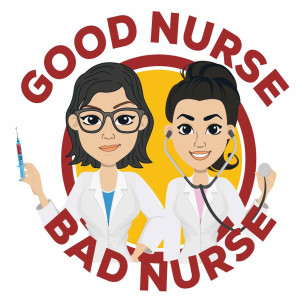
Good Nurse Bad Nurse

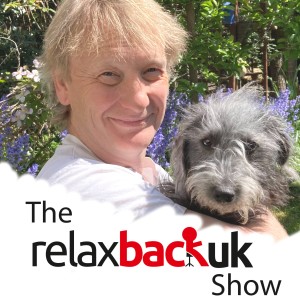
The Relaxback UK Show

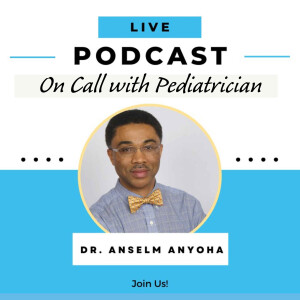
On Call With Dr. Anselm Anyoha

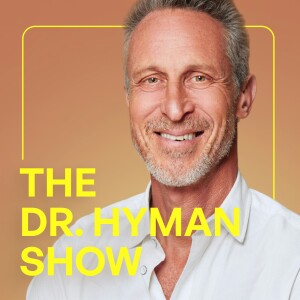
The Dr. Hyman Show


The Peter Attia Drive

- Privacy Policy
- Cookie Policy
- Terms of Use
- Consent Preferences
- Copyright © 2015-2024 Podbean.com

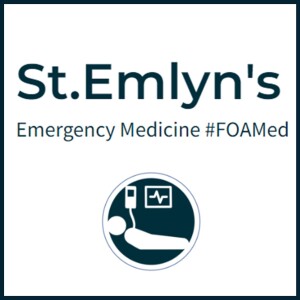
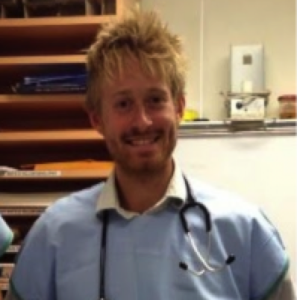

 iOS
iOS Android
Android